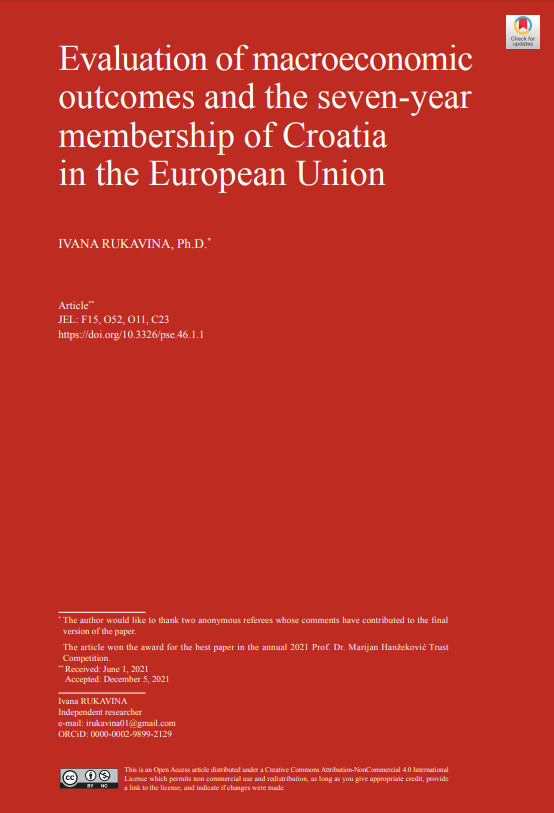Evaluation of macroeconomic outcomes and the seven-year membership in the European Union
DOI:
https://doi.org/10.3326/pse.46.1.1Keywords:
European Union, integration, Croatia, macroeconomics, synthetic control methodAbstract
The paper evaluates the Croatia’s seven-year membership in the European Union based on selected macroeconomic indicators by using a methodological approach, counterfactual analysis, and a synthetic control method. The results showed that the effect of the accession stimulated the economic growth and components of aggregate demand, income, savings and sectoral productivity. Also, strong disturbances with the onset of the crisis in 2009 were detected, the effects of which ultimately had a negative consequence in terms of more successful economic integration. Accession to the EU halted the decline in macroeconomic indicators and began a mild, but still insufficient recovery. The research confirms a strong trend of export development after 2013, a strong turn and increase in savings, a strong and significant decline in the value added of the agriculture sector as well as not recovered consumption. Also, the positive effect in the reduction of government expenditures is expressed.

Downloads
Published
How to Cite
Issue
Section
License
Copyright (c) 2022 Ivana Rukavina

This work is licensed under a Creative Commons Attribution-NonCommercial 4.0 International License.








